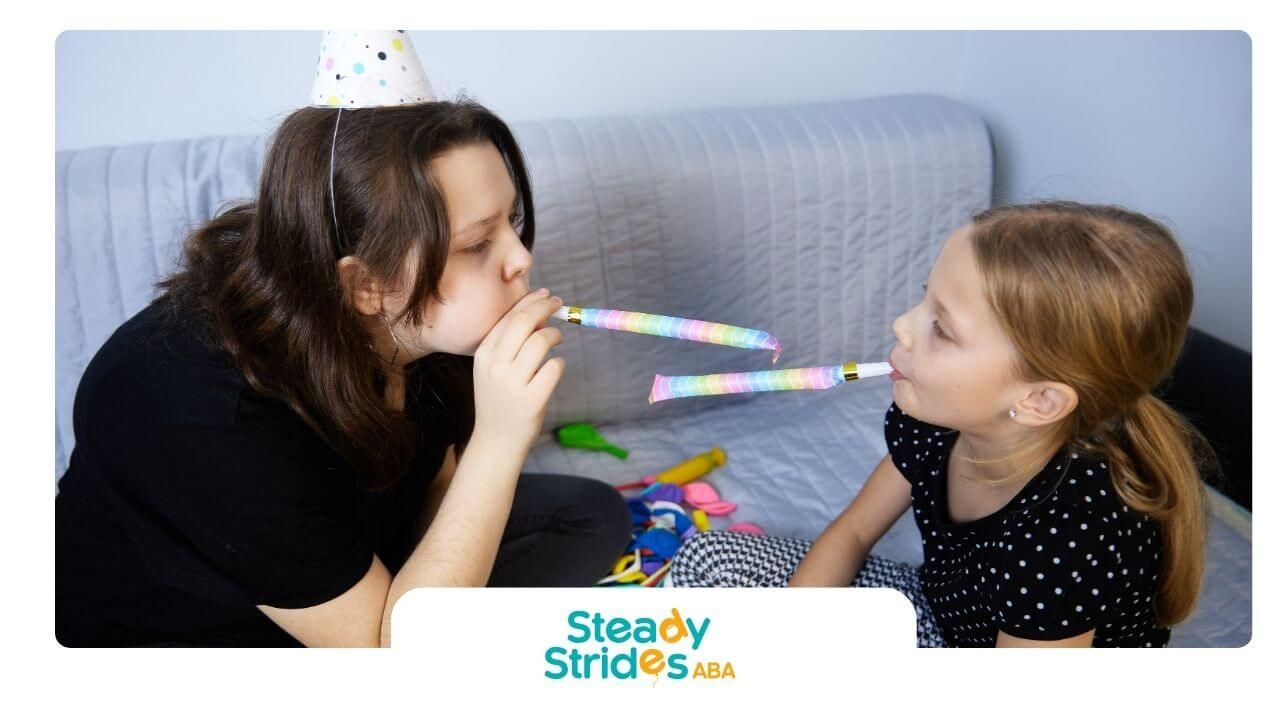Becoming a Board Certified Behavior Analyst (BCBA) is a goal many people interested in Applied Behavior Analysis (ABA) therapy strive to achieve. The BCBA certification allows professionals to work directly with individuals with autism spectrum disorder (ASD) and other developmental disabilities, designing and implementing behavior intervention plans to improve their quality of life.
But one common question asked by aspiring professionals is whether a bachelor's degree alone is enough to become a BCBA.
In this article, we'll explore whether you can become a BCBA with only a bachelor's degree, the educational requirements for certification, alternative career paths within ABA, and steps to pursue if you're on the path to becoming a BCBA.
What Does a BCBA Do?
A Board Certified Behavior Analyst (BCBA) is a professional with specialized training in Applied Behavior Analysis (ABA), a widely recognized therapy for children and adults with developmental disorders, particularly autism. BCBAs are responsible for designing, implementing, and supervising behavior intervention plans aimed at improving social, communication, and behavioral challenges. They may work in a variety of settings, including schools, homes, clinics, and community-based programs.
Key BCBA Responsibilities:
- Conduct behavior assessments to understand the specific challenges an individual faces.
- Develop individualized treatment plans based on ABA principles.
- Train caregivers, teachers, and Registered Behavior Technicians (RBTs) on how to implement these plans.
- Monitor and adjust behavior intervention programs to ensure their effectiveness.
Can You Become a BCBA With a Bachelor's Degree?
The short answer is no—a bachelor's degree alone is not enough to become a BCBA. According to the Behavior Analyst Certification Board (BACB), you need at least a master's degree in behavior analysis, psychology, education, or a related field to qualify for BCBA certification.
The role of a BCBA is complex and requires a higher level of education and training to fully grasp the principles of ABA, conduct research, and effectively create behavioral treatment plans.
The BACB Requirements
The BACB has strict educational and training criteria for becoming a BCBA. These requirements include:
- A Graduate Degree: A master’s or doctoral degree in behavior analysis, education, psychology, or a related field from an accredited institution is required.
- Coursework: You must complete a BACB-verified course sequence as part of your graduate program. This coursework typically covers the principles of behavior analysis, ethics, and assessment techniques.
- Supervised Fieldwork: In addition to coursework, aspiring BCBAs must complete a certain number of supervised fieldwork hours under the guidance of a certified BCBA.
- BCBA Exam: Once you've completed your educational and fieldwork requirements, you must pass the BCBA exam to obtain certification.
Alternative Paths in ABA: What Can You Do with a Bachelor's Degree?
Even though you can't become a BCBA with just a bachelor's degree, there are alternative career paths within the ABA field that allow you to work in a meaningful capacity and eventually progress to BCBA certification.
Becoming a Registered Behavior Technician (RBT)
A Registered Behavior Technician (RBT) is an entry-level position within ABA. RBTs work directly with individuals under the supervision of a BCBA or BCaBA (Board Certified Assistant Behavior Analyst). Their primary role is to implement the treatment plans designed by their supervising BCBA and record data on the individual's progress.
Requirements to Become an RBT:
- A high school diploma (or equivalent).
- Completion of a 40-hour training program.
- Pass the RBT competency assessment and exam.
This role is ideal for those who are interested in gaining hands-on experience in ABA before pursuing higher education or certification.
Becoming a Board Certified Assistant Behavior Analyst (BCaBA)
A BCaBA is a mid-level certification within the ABA field. BCaBAs can conduct behavior assessments and design intervention plans but must work under the supervision of a BCBA. This certification is a great option for individuals with a bachelor’s degree who want to advance in their ABA careers.
Requirements to Become a BCaBA:
- A bachelor’s degree in behavior analysis, education, or a related field.
- Completion of a BACB-approved course sequence.
- Accumulation of supervised fieldwork hours.
- Passing the BCaBA exam.
Many BCaBAs continue their education by pursuing a master's degree and eventually becoming BCBAs. The role provides valuable experience that can help you decide if further education is the right path for you.
Path to Becoming a BCBA
If you have a bachelor’s degree and are interested in becoming a BCBA, there are clear steps you need to follow to reach your goal.
Step 1: Earn a Bachelor’s Degree
First, complete a bachelor’s degree in psychology, education, behavior analysis, or a related field. This will give you a foundational understanding of human behavior and provide a stepping stone for future studies.
Step 2: Gain Experience as an RBT or BCaBA
Before pursuing your graduate degree, consider gaining experience by working as an RBT or BCaBA. This hands-on experience will not only give you practical skills but also provide insight into whether the BCBA career is right for you.
Step 3: Pursue a Master’s Degree
Enroll in a master’s degree program that includes BACB-approved coursework. Many universities offer behavior analysis programs specifically designed to prepare students for BCBA certification.
Step 4: Complete Supervised Fieldwork
While earning your graduate degree, you’ll need to accumulate supervised fieldwork hours. These hours must be completed under the supervision of a certified BCBA and are required for you to sit for the BCBA exam.
Step 5: Take the BCBA Exam
After completing your education and fieldwork, you’ll be eligible to sit for the BCBA exam. Passing this exam is the final step toward certification.
Conclusion
While you cannot become a BCBA with only a bachelor’s degree, pursuing a graduate degree and obtaining the necessary experience through roles like RBT or BCaBA can set you on the path to this rewarding career.
Whether you're just starting or are already working in ABA, advancing to BCBA certification will allow you to take on more responsibilities, improve the lives of individuals with autism and other developmental disabilities, and open up career opportunities.
Join our team at Steady Strides and make a difference in the lives of children with autism. Learn more about our career opportunities here!
FAQs
Can you become a BCBA without a master's degree?
No, a master's degree is required to become a BCBA. You must have a graduate degree in behavior analysis, psychology, or a related field.
Can I work in ABA with just a bachelor's degree?
Yes, you can work in ABA as an RBT or BCaBA with a bachelor's degree, but you cannot become a BCBA without further education.
Título ou pergunta
Descreva o item ou responda a pergunta para que os visitantes do site que estejam interessados possam obter mais informações. Você pode enfatizar este texto com marcadores, itálico ou negrito e adicionar links.













